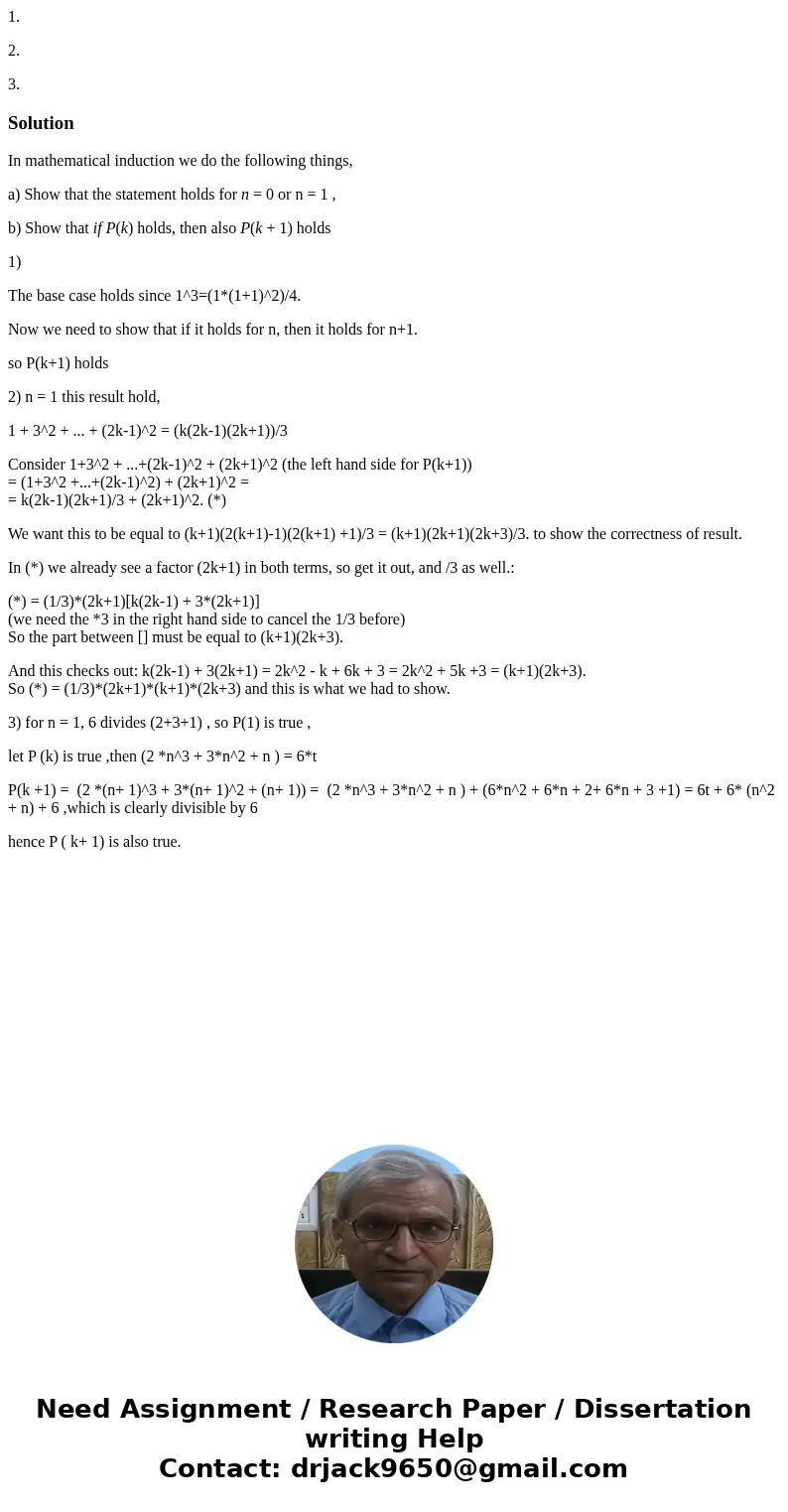1 2 3SolutionIn mathematical induction we do the following t
1.
2.
3.
Solution
In mathematical induction we do the following things,
a) Show that the statement holds for n = 0 or n = 1 ,
b) Show that if P(k) holds, then also P(k + 1) holds
1)
The base case holds since 1^3=(1*(1+1)^2)/4.
Now we need to show that if it holds for n, then it holds for n+1.
so P(k+1) holds
2) n = 1 this result hold,
1 + 3^2 + ... + (2k-1)^2 = (k(2k-1)(2k+1))/3
Consider 1+3^2 + ...+(2k-1)^2 + (2k+1)^2 (the left hand side for P(k+1))
= (1+3^2 +...+(2k-1)^2) + (2k+1)^2 =
= k(2k-1)(2k+1)/3 + (2k+1)^2. (*)
We want this to be equal to (k+1)(2(k+1)-1)(2(k+1) +1)/3 = (k+1)(2k+1)(2k+3)/3. to show the correctness of result.
In (*) we already see a factor (2k+1) in both terms, so get it out, and /3 as well.:
(*) = (1/3)*(2k+1)[k(2k-1) + 3*(2k+1)]
(we need the *3 in the right hand side to cancel the 1/3 before)
So the part between [] must be equal to (k+1)(2k+3).
And this checks out: k(2k-1) + 3(2k+1) = 2k^2 - k + 6k + 3 = 2k^2 + 5k +3 = (k+1)(2k+3).
So (*) = (1/3)*(2k+1)*(k+1)*(2k+3) and this is what we had to show.
3) for n = 1, 6 divides (2+3+1) , so P(1) is true ,
let P (k) is true ,then (2 *n^3 + 3*n^2 + n ) = 6*t
P(k +1) = (2 *(n+ 1)^3 + 3*(n+ 1)^2 + (n+ 1)) = (2 *n^3 + 3*n^2 + n ) + (6*n^2 + 6*n + 2+ 6*n + 3 +1) = 6t + 6* (n^2 + n) + 6 ,which is clearly divisible by 6
hence P ( k+ 1) is also true.

 Homework Sourse
Homework Sourse